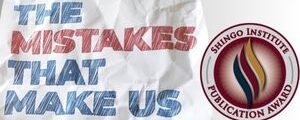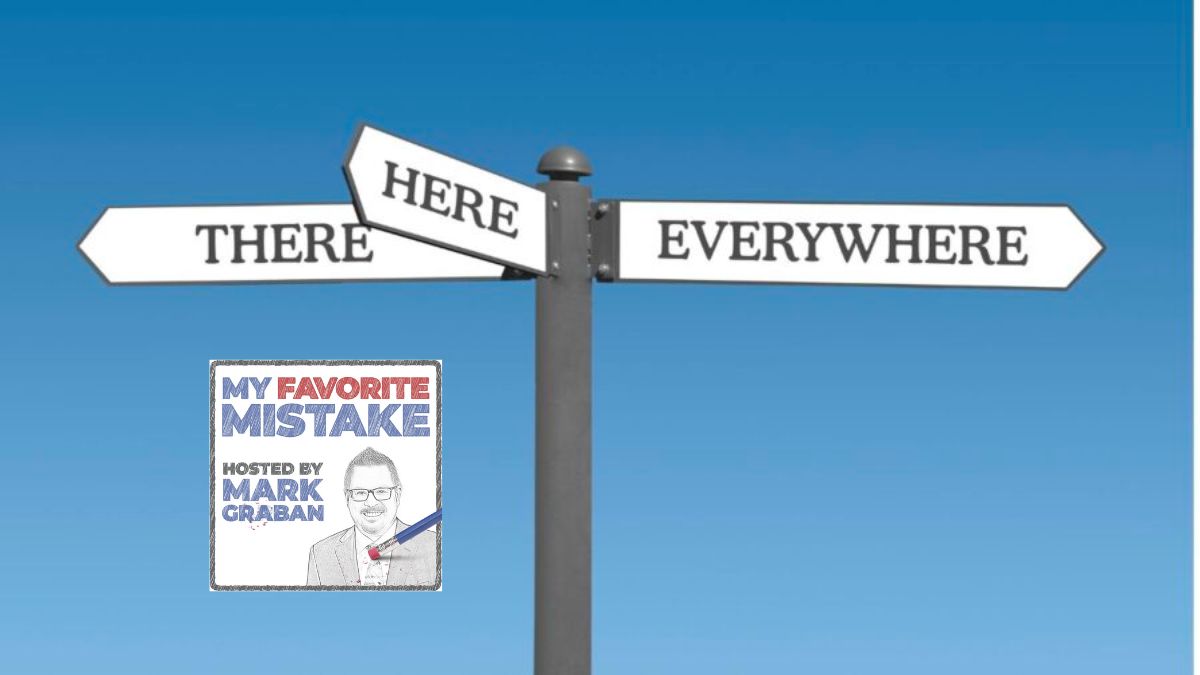What Worked There Won’t Necessarily Work Here — A Frequent Cause of Mistakes
In our interconnected world, the assumption that what works in one place will work in another can lead to surprising lessons. This post brings you compelling stories from influential leaders who learned the hard way that adaptation is key to success in diverse contexts.
From Dr. Nicole F. Roberts’ realization in global aid, to Mark Noon’s military-to-civilian career transition, and Teresa de Grobois’ journey of influence, these narratives delve into the heart of learning from missteps. Join us as we explore these enlightening tales of resilience and adaptation, offering invaluable insights for anyone striving to make a positive impact in our ever-changing world.
This material was cut from earlier drafts and did not appear in the book The Mistakes That Make Us: Cultivating a Culture of Learning and Innovation.
Three of my “My Favorite Mistake” podcast guests shared similar stories about assuming what worked in their home country would work in another — in both the charitable and for-profit sectors.
Adapting to Local Needs: Dr. Nicole F. Roberts’ Journey from Misassumption to Impactful Change in Global Aid
Dr. Nicole F. Roberts, an American with a doctorate in public health, is the executive director of Feed a Billion, an international nonprofit that feeds girls around the world to help prevent exploitation. She made a bad assumption about what constituted a “meal” in India. She assumed that a hot meal or a full meal, a plate of food, was needed and wanted.
“When you work internationally, there were so many examples where you make an assumption, and it’s not relevant to a particular community or a group of people or religion.”
Nicole was devastated to learn that when a girl was provided a full meal during the day at school through her program, the families would often withhold a meal from them later at home, distributing that food amongst their other children. It took a few days for Nicole to digest that new knowledge.
Nicole feared that her program was reducing the amount of nutrition the girls received, and they could be causing more harm than they were trying to reduce.
By listening more to local experts about local needs, Nicole partnered with them to start providing a protein shake full of their daily nutritional requirements while also being very storable. The girls loved the shakes, and Nicole got past (and learned) from the bad assumption — reducing the risk that she would make a different bad assumption in a different country at a later time.
Embracing Change and Continuous Growth: Mark Noon’s Transition from Military to Civilian Leadership
When Mark Noon retired from the USAF, he thought it would be “easy” to transition to his civilian career as an improvement coach for healthcare organizations. “I thought it would be a breeze to just walk right in and be on top of the world.” He’s seen many others make that same mistake.
Mark assumed he could start coaching healthcare executives the same way he coached others in military medicine. After six months of working 80-hour weeks, he went into a “panic” mode and wondered if it was a mistake to leave the comfortable Air Force setting after 20 years. It sank in that Mark had a huge learning curve. Iit was hard to build trust as an outsider, and he couldn’t tell people what to do — he was no longer in the formal position of authority as Major.
Thankfully, Mark recognized the problem as he feared he might be fired. Fortunately, he wasn’t afraid to ask for help, and his supervisor in the coaching organization provided assistance to figure out gaps in his approach and to also “breathe a little bit” and be more patient.
Mark learned to “Go in with the confidence of what you know, and then also be humble enough to say, ‘There are things I don’t know.’” While he adjusted his approach, the firm tweaked Mark’s role to be more as a speaker at conferences and leadership development meetings.
Mark has come to apply his experience to the advice he gives other leaders about a possibly mistaken hire: “Just because it didn’t work out when you hired somebody doesn’t necessarily make them a bad hire. Just find them the right spot.”
He hopes that other leaders come to embrace continued reflection and development too. Leaders have “never really fully arrived, I don’t care if you’re the CEO, you have not arrived when it comes to leadership. Are you better than you were? I hope you are. And I hope you continue to get better.”
From Missteps to Mastery: Teresa de Grobois’ Journey of Learning and Influence
Teresa de Grobois, the founder of the Evolutionary Business Council, is a Quebec native who currently lives in Costa Rica. Teresa stepped away from the financial safety net of her initial career because she wanted to create a legacy and change the world.
She set up a charity to build schools in Africa and quickly wrote three best-selling children’s books to fund those efforts. Theresa realized, within six months, that she “didn’t really love running a charity” with all of the bureaucracy involved, and she didn’t love writing children’s books. The charity soon failed. What happened?
Her organization went into Sudan, full of “North American arrogance,” with an assumption that Sudan needed schools that would be designed and built to the North American standard. She didn’t listen when the local people told her to “not make it too nice” — just build a roof and some tables instead of fully enclosed walls with windows.
Within a week of opening the school, the military took it over. “So what we achieved was building a really nice military installation using the Canadian charitable donor’s funds.” It was “devastating” to realize this, but Teresa learned to check her assumptions and that North Americans coming to tell Africans what they should do in their communities “just doesn’t work.”
This unfortunate experience was Teresa’s favorite mistake because she thinks that, without that decision, she would still be toiling away in her initial career. She’s better off now. She also learned that her “superpower” that energized her was something that others clamored for help with — “how the heck did you write three best-sellers in eight months?”
She now coaches others on how to build and leverage networks of influencers as a way to gain greater exposure for their work, following the model she used with those books. Without her mistakes, she wouldn’t have discovered these new opportunities for herself.
Adapting to Succeed: Brigitta Hoerfele’s Evolution in Montessori Education and Leadership
Brigitta Hoerfele is a Montessori educator who moved from Germany to the United States, settling in Cleveland. You might be mistakenly assuming that she is in Cleveland, Ohio, but she is in the small town of Cleveland, Tennessee.
Upon arrival, she wanted to build a German Montessori school — the German way, and she was being young and cocky about it. She assumed that her experience, the way she wanted to do it, would work there. Brigitta quickly discovered that “so many mistakes” were being made with that approach, but she quickly learned from them — that it didn’t have to be “her way or the highway.” What worked in Munich didn’t work here.
Brigitta believes “there is no failure, only feedback.” She got a lot of feedback from what she tried. “There were many learning opportunities that others might have considered mistakes. There were many learning opportunities on the way.”
One mistake was paying to invest in Montessori training and certification for teachers, as it took a lot of work to recruit them in her small town. One teacher left after just one year, and Brigitta learned it was a mistake not to have a contract requiring them to stay for a certain amount of time, so she made that adjustment and put a five-year contract requirement in place.
Brigitta still had a broader problem with teacher retention, to the point where it concerned parents and was hurting her business. She blamed the teachers who left until the gradual realization that her leadership style had to change to accommodate the teachers instead of repeating the mistake of wanting them to fit in with Brigitta’s style.
She has learned that what we know is a small sliver of what could be known. We might know what we don’t know, but the biggest problem is not knowing what we don’t know. Brigitta dove into her learning — reading books about leadership and having more conversations with more parents about how she needed to adapt.
“As a young business owner, that was another hard pill to swallow because you think you know it all — and I didn’t.”
Brigitta says this experience taught her to be much more humble – and thankfully, the school didn’t have to fail for her to learn from the struggles. After starting with space for just seven students, she expanded it to accommodate up to 70.
As with many successful entrepreneurs, she can combine the confidence to start something new while now having the humility to listen and to learn from feedback — or mistakes.



